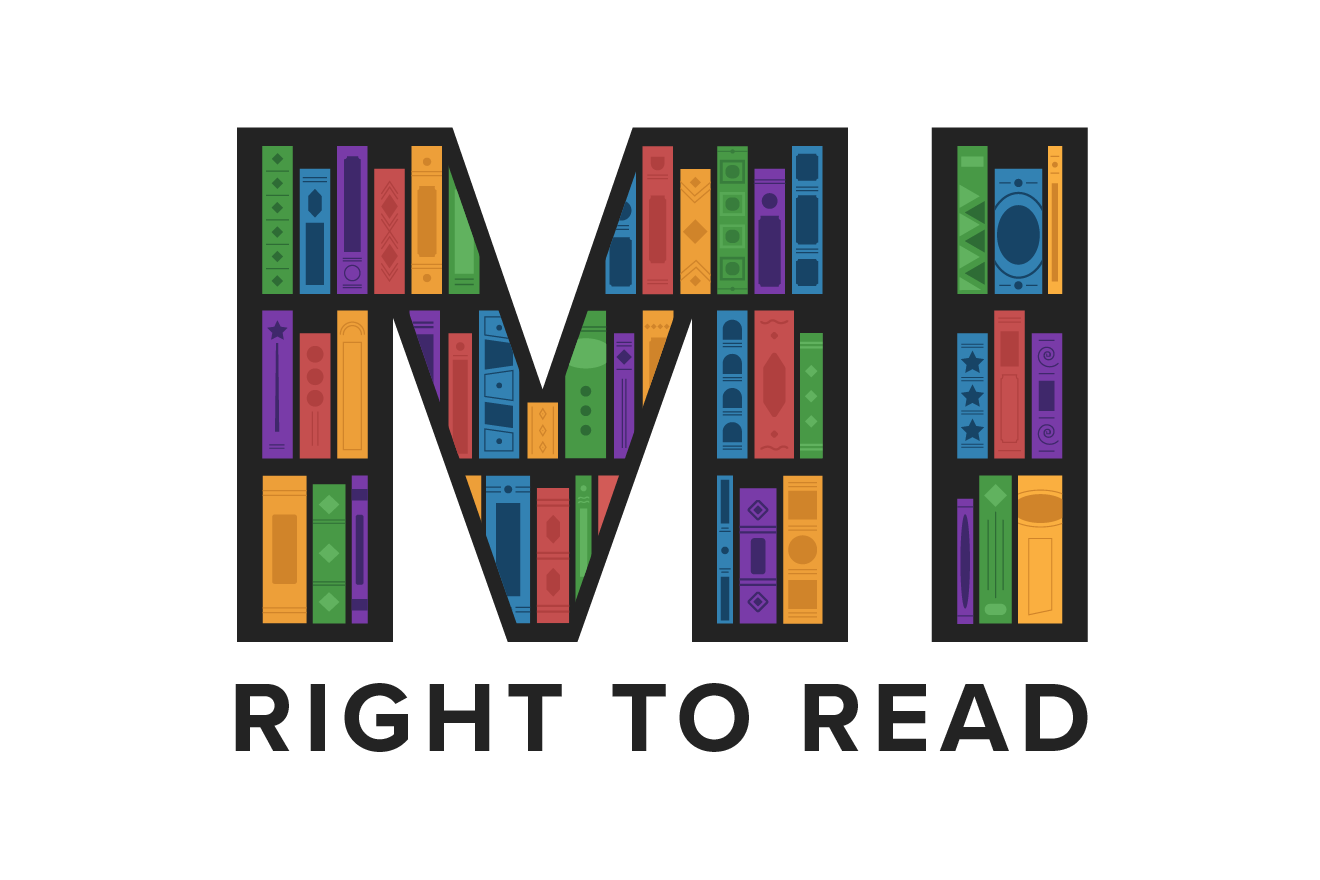
It is the responsibility of libraries to guarantee
and facilitate access to all expressions of knowledge and intellectual activity, including those which some individuals in our society may consider to be unconventional, unpopular, or unacceptable.
What you need to know.
Who are we?
MI Right to Read is an initiative of the Michigan Library Association (MLA), coordinated through the leadership of the Intellectual Freedom Task Force. MLA leads the advancement of all Michigan libraries through advocacy, education and engagement. As Michigan’s oldest and largest library association, MLA has advocated for libraries since 1891 with a membership base of close to 2000 library professionals and supporters in urban, suburban, and rural areas of the state. We are champions of access and believe that libraries are the heart and soul of every community and campus throughout Michigan.
What we aim to achieve.
Intellectual freedom is a core value of the library profession and a basic right in our democratic society. Our goal is to protect Michiganders’ right to read, propose pro-active legislation that protects First Amendment Rights, oppose attempts to ban books from Michigan libraries, educate the public about the right to read, contest any legislation that infringes upon Michigan citizens’ First Amendment rights and ensure that librarians across Michigan will be entrusted to continue to do their jobs and serve the needs of ALL individuals and communities. We believe that while a specific book may not be the right fit for one person, it may still be the perfect fit for another. No one individual or group should make sweeping decisions that take that process of careful consideration away from the experts and that choice away from readers.
Long term effects of book banning.
Book banning has a long history throughout the world. When a book gets challenged or banned, someone is trying to decide what is best for everyone based on their own beliefs and feelings. Banning books means narrowing their world view. Banned books are actually some of the best books for people to read, because they offer new perspectives and insights from people with life experiences different from our own. Books currently being targeted are those written by and about traditionally marginalized people and experiences including LGBTQIA+, BIPOC and women. Banning children from being able to see different cultures, same-sex couples, and languages in books, closes their world off. It makes them only view the world one way. When books are banned, it sends a clear message that certain ideas are not acceptable in society. A society in which book banning is acceptable is no longer a free society. It weakens education and prevents people from learning to think for themselves.
Why now?
Censorship is nothing new. However, the volume of attempted censorship efforts and extremist rhetoric we are witnessing across our nation, and here in Michigan, is unprecedented. We are living in a tumultuous time and we believe the proponents of removing books from library shelves are trying to further divide our country by turning our political disagreements into a culture war. While every individual has a right to challenge a book, we are seeing a coordinated and orchestrated attempt by conservative organizations and well-funded groups to remove books about racism, sexuality, gender, and history. Even the threat of censorship creates an environment of fear that leads to restrictions on access to information.
Collection development.
Collection development policies, which are used by librarians to choose books, are developed and approved by library governing authorities (library boards, school boards, or city or county governments.) Librarians work extremely hard to develop library collections that reflect the diversity of their particular community or school as well as the larger world. The implication by individuals that they would intentionally include books that are harmful undermines their best efforts and erodes public trust.
Librarian qualifications.
To be a librarian, a Master’s of Library and Information Science (MLIS) degree is required. Librarians receive significant education and ongoing training which qualifies them to develop collections that meet the broad and varied interests and needs of students and communities. Certified school librarians in Michigan are certified teachers who have added the Library Media (ND) endorsement to their teaching certificate by successfully completing an MLIS degree (or experimental School Library Media Specialist certification at Wayne State University) and the state Library Media certification exam. They must earn 150 hours of continuing education every 5 years to maintain their certification.
“Banning books give us silence when we need speech. It closes our ears when we need to listen. It makes us blind when we need sight.”
— Stephen Chbosky
